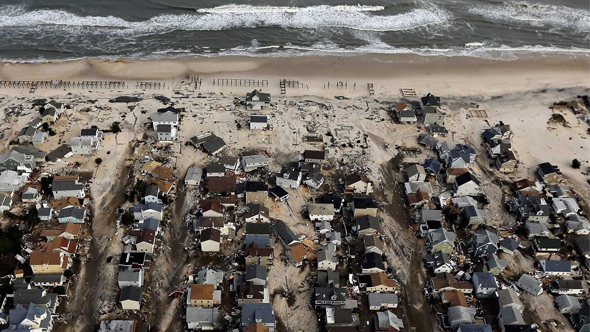
“We’ve got to look after our children; we have to look after our future; and we have to grow the economy and create jobs. We can do all of that as long as we don’t fear the future; instead we seize it.” ~ Barack Obama.
About twenty years ago someone wrote a speech about the environment. It wasn’t a very complex one. There was a problem, the problem was big, and unless we did something about the problem it would cause other, bigger, problems. It was not a particularly good speech. Indeed, the only thing rescuing it from mediocrity was a single, memorable petition. “Think of the future” the speaker pleaded, “think of the children.” This line was judged such a success that the great and the good decided no more speeches needed to be written on the subject, instead they would just deliver this one, again and again, until the problem was solved or got sufficiently severe to preclude speech-making.
Thus the phantom future and its legions of unborn children became the logic of environmentalism. Every thinker, writer or speaker found it almost impossible not to invoke their presence, to plead on their behalf with a present seemingly ambivalent to their fate. Indeed this ambivalence has become the great enemy of the environmental movement, which tears its hair and beats its breast over its continual failure to overcome it. The vitriol directed at the masses for failing to care and the movement for failing to make it care, is, however, pointless.
The environmental movement makes a dismal promise. In return for personal and collective sacrifices, we are greeted with a series of abysmal rewards. “You may not starve!” “You may not lose your homes!” “You might not even suffer more than you do already!” People are not stupid. They know this is a bad deal.
The future is a nebulous and complex thing. It is a tangle of potentialities and causalities, a construct of chance and luck, a mess of the plausible and implausible. Most of us struggle to imagine the world in five years time, let alone fifty. The future is a terrain on which we are all blind, to attempt to fight our battles there is madness.
The invocation of the future, however, is merely delusional. The invocation of the child, on the other hand, is dangerous.
The world most often promised to the children is not even possible. The relentless search for surplus is not compatible with the preservation of our planet. “Green capitalism” is a myth that can only survive in the fog of the future. In 2012 Exxon Mobil had net profits of $44.88 billion, its total assets amounting to $333.795 billion. For some perspective, the world’s largest wind turbine manufacturer, Vestas, reported net profits for 2010 of €156 million and total assets of €7.066 billion. The assets of the oil firms are based in the vast resource reserves they have accumulated over the last century. By the end of 2007, Exxon Mobil’s reserves were 72 billion oil-equivalent barrels. In 2013, Mobil announced it was replacing these reserves at a rate of 115%. Some have proposed that corporations such as Mobil would willingly leave these resources in the ground for a notional payment of half their value. Such an idea betrays both optimism and a total ignorance of capitalism. Even if such a thing occurred, many other industries would need to be utterly reformed. The industrialised harvesting of Earth’s bounty, be it via mines, fisheries or forests, would have to be greatly limited. Given the amount huge companies have invested in the means by which these processes are carried out, it seems highly unlikely this will happen anytime soon.
Let us not forget this extraordinary exercise would have definite deadlines. The 2 degrees rise in global temperatures needed to trigger “dangerous climate change” may happen as early as 2040. It is hard to imagine the future, but perhaps we don’t need to if we look at the carnage already being wrought by rising temperatures, and then remember this isn’t even “dangerous climate change” yet. In addition to this we have the looming global disintegration of integral ecosystems. As early as 2006 a third of the world’s fisheries had collapsed, by 2050 it is eminently possible that every single fishery on Earth will have followed suit. Up till now humanity has been cowering from a bullet we thought was speeding towards us. It turns out, however, that we’re in shock. The bullet isn’t in flight, it has already hit us.
As an utter necessity we must abandon the future, for we cannot win there. No future, for we will never convince the majority to fight for the sake of a time they cannot imagine. No future, for capital will always defeat any strategy based on a “next-ness”, for against airy notions of tomorrow’s world, they can posit the cold hard facts of today materialised in wages and jobs. No future, because, right now, there is literally no future, right now we are condemned to collapse.
But “no future” alone is a nihilistic thing to cry. To survive we must couple bleak reality with the utopian impulse and shout instead: “No Future, Utopia Now.” Let us jettison the notion of gradual change. There is no time for a transition. Let us pledge ourselves unflinchingly to a utopia, but not a distant one, not an imaginary thrown out into the future, but one we can build right now. One in which work is all but abandoned, in which the liberation of every minority is a priority, in which collective well-being is the only ideology. The movement is already there, in Elsipogtog, in the Xingu River basin, in Balcombe, however it will never grow if we continue to base the struggle in terms of survival alone. Instead, we must promise the earth to all those who will commit to the fight to save it.
By Out of the Woods | @out_woods | libcom.org/outofthewoods










1 Comment